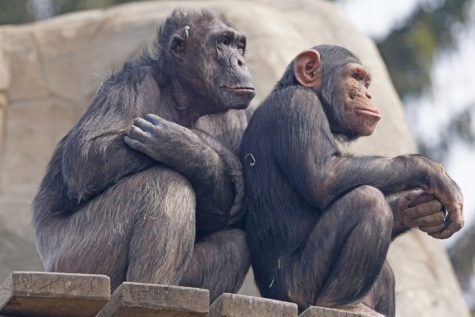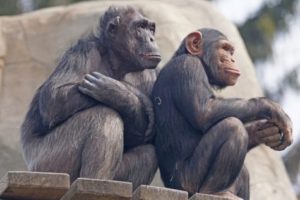
AMHERST, Mass. — While it’s long been believed that chimps are stronger than humans, the gap between the two species isn’t as large as urban legends suggest, a new study finds.
Researchers at the University of Massachusetts Amherst both studied previous literature and conducted their own experiments before coming to the conclusion that chimpanzees have about 1.35 times the strength and power of the average human.

The difference in strength, contrary to popular belief, is mostly due to a larger variety of muscle fibers found in chimps, as opposed to outright stronger muscle fibers.
To explain his interest in conducting the study, lead researcher Brian Umberger explained in a university news release: “There are nearly 100 years of accounts suggesting that chimpanzees must have intrinsically superior muscle fiber properties compared with humans, yet there had been no direct tests of that idea.”
To this end, the researchers found that chimpanzees have double the number of fast-twitch muscle fibers of humans, which may explain the disparity in strength. Fast-twitch fibers are known for enabling fast and powerful movement, albeit over shorter periods of time.
The bulk of their research was conducted through the use of computer models, although individual and isolated experiments were also employed.
The study’s findings demonstrate how humans, armed with an abundance of slow-twitch fibers, are more suited for endurance activities, such as long-distance walking, than primates. This feature may be unique to humans in the evolutionary path from which chimps and humans diverged.
“When we compared chimps and humans to muscle fiber type data for other species we found that humans are the outlier, suggesting that selection for long distance, over-ground travel may have been important early in the evolution of our musculoskeletal system,” says Umberger.
Looking at all their data, the team calculated that the “chimp muscle produces about 1.35 times more dynamics force and power than human muscle.”
In the end, “natural selection appears to have altered more global characteristics of muscle tissue, such as muscle fiber type distributions and muscle fiber lengths,” concludes Umberger et al.
The study’s findings were published in the journal Proceedings of the National Academy of Sciences.











They're strong enough to rip your genitalia off. That's about all I need to know.
Do you speak in a very high voice?
Tell that to the women who got her face rip off...
Her number isn't listed.
However, if I thought about them less would they get stronger?